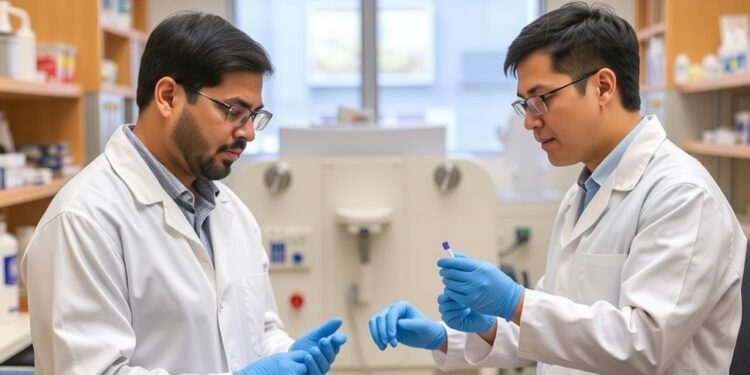University of Illinois Chicago researchers have embarked on a groundbreaking journey to redefine the treatment landscape for acute lymphoblastic leukemia, which stands as the most prevalent blood cancer among children. Harnessing the power of protein engineering, the team has innovatively redesigned the enzyme asparaginase, a fundamental component of leukemia therapy. The aim is not only to enhance its therapeutic capabilities but also to mitigate its severe side effects, thus widening the scope of patients who may benefit from this treatment. Through their pioneering efforts, they hope to forge a path toward a safer, more effective therapeutic option for a range of cancers beyond leukemia.
Asparaginase has played a pivotal role in the treatment of acute lymphoblastic leukemia since its FDA approval in the 1970s. Despite its significance in cancer therapy, the existing formulations of asparaginase are notorious for their adverse side effects, including severe blood clots and liver damage. These complications have restricted the drug’s use to a limited subset of patients, often forcing oncologists to make difficult decisions regarding treatment plans. The research team is acutely aware of these challenges and has set themselves on a course to address them head-on, thereby advancing the therapeutic potential of asparaginase for a broader patient population.
The novel enzyme developed by the UIC team seeks to augment the efficacy of asparaginase while significantly reducing the associated risks. By leveraging advanced protein engineering techniques, they have created a biologic compound that preserves the enzyme’s anticancer properties while minimizing the toxic effects that have plagued traditional formulations. This optimization process not only enhances the drug’s therapeutic index but also raises the prospect of utilizing it in the treatment of other malignancies, such as melanoma and liver cancer. As such, the research represents a promising leap towards developing more versatile cancer therapies.
In a recent publication in the journal Cancer Letters, Lavie and his collaborators reported compelling findings from preclinical studies conducted on animal models. Their innovative enzyme demonstrated impressive efficacy, successfully obliterating leukemia cells in mice while sparing them from the debilitating side
Tags: acute lymphoblastic leukemia treatmentcancer therapy advancementsenhancing therapeutic capabilitiesFDA-approved cancer drugsimproving patient outcomes in cancer therapyinnovative oncology researchmitigating cancer treatment side effectspediatric blood cancer researchprotein engineering in medicineredesigned asparaginase enzymesafer cancer treatment optionstargeted leukemia therapies





